 At this past Sunday's 1949 Smackdown, Aaron (of Sarcasm with a Light Cream Sauce) described himself as "completely baffled" by the nomination for today's profiled performance. And, indeed, it is quite the puzzler. I can only presume that this nomination is a perfect example of what I sometimes call a "coaster" nomination, in which the general swell of nominations for a given picture ends up tossing a Supporting Actress nomination to a performance that would almost certainly not have otherwise made the cut. Sometimes the "coasters" are a delight (like Joan Cusack in Working Girl or Abigail Breslin's Little Miss Sunshine) but just as often the "coasters", especially in retrospect, prove to be confounding examples of that enduring query: "What were you thinking, Oscar?" Indeed, what else can explain why, in a year in which not a single nomination went to the women of A Letter to Three Wives, Oscar somehow saw fit to nominate...
At this past Sunday's 1949 Smackdown, Aaron (of Sarcasm with a Light Cream Sauce) described himself as "completely baffled" by the nomination for today's profiled performance. And, indeed, it is quite the puzzler. I can only presume that this nomination is a perfect example of what I sometimes call a "coaster" nomination, in which the general swell of nominations for a given picture ends up tossing a Supporting Actress nomination to a performance that would almost certainly not have otherwise made the cut. Sometimes the "coasters" are a delight (like Joan Cusack in Working Girl or Abigail Breslin's Little Miss Sunshine) but just as often the "coasters", especially in retrospect, prove to be confounding examples of that enduring query: "What were you thinking, Oscar?" Indeed, what else can explain why, in a year in which not a single nomination went to the women of A Letter to Three Wives, Oscar somehow saw fit to nominate...
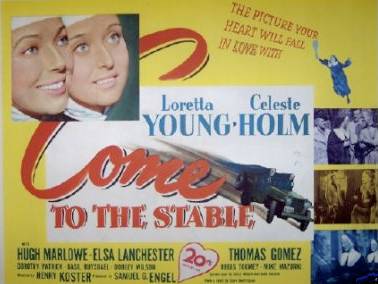
...Elsa Lanchester in Come to the Stable (1949)
approximately 17 minutes and 33 seconds
6 scenes
roughly 19% of film's total running time
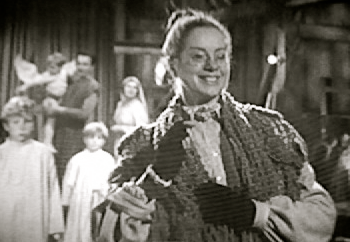 Of course, Lanchester's Miss Potts provides the traveling nuns shelter in her cozy rental shack and listens with interest to their plans to build a children's hospital in her Western Connecticut neighborhood.
Of course, Lanchester's Miss Potts provides the traveling nuns shelter in her cozy rental shack and listens with interest to their plans to build a children's hospital in her Western Connecticut neighborhood.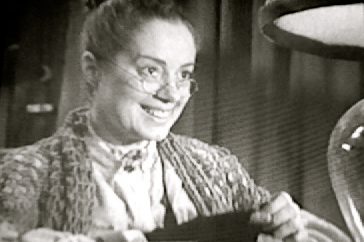 To be sure, Lanchester's Miss Potts also listens with concern.
To be sure, Lanchester's Miss Potts also listens with concern.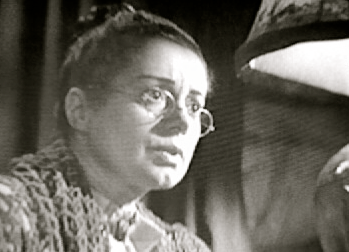 For this religious comedy, Lanchester's Amelia Potts is the essential ambient character, a secondary character who can help set the tone for the whole picture (here, by embodying both good-natured silliness of the piece as well as the sincerity of its religious feeling). Come to the Stable is a very sincere goof of a picture and, on one level, that's precisely what Lanchester's characterization accomplishes: she's sincerely goofy.
For this religious comedy, Lanchester's Amelia Potts is the essential ambient character, a secondary character who can help set the tone for the whole picture (here, by embodying both good-natured silliness of the piece as well as the sincerity of its religious feeling). Come to the Stable is a very sincere goof of a picture and, on one level, that's precisely what Lanchester's characterization accomplishes: she's sincerely goofy.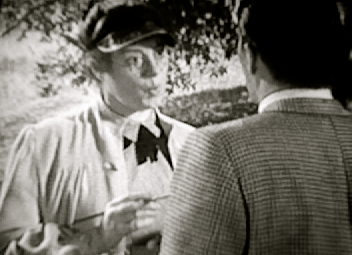 The problem, though, with Lanchester's approach is that she so overplays Amelia's eccentricities that she loses touch what is, arguably, the character's most important feature: her genuine faith.
The problem, though, with Lanchester's approach is that she so overplays Amelia's eccentricities that she loses touch what is, arguably, the character's most important feature: her genuine faith.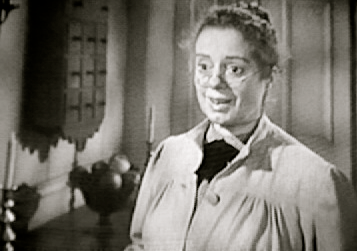 Lanchester's signature quirk might have served the role with charm had she tempered some of Amelia's fretfulness with more of Amelia's genuine faith. But as it stands, Lanchester's performance is a dotty, dithering disaster.
Lanchester's signature quirk might have served the role with charm had she tempered some of Amelia's fretfulness with more of Amelia's genuine faith. But as it stands, Lanchester's performance is a dotty, dithering disaster.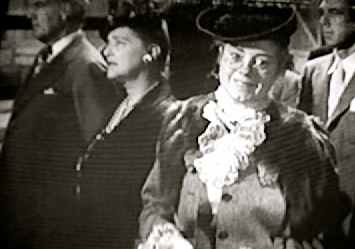 And it's too bad, too. I like Lanchester. A lot. And I think I really like the character of Amelia Potts. It's just that the two put together? This "coaster" is, as one StinkyPal might say, just not good.
And it's too bad, too. I like Lanchester. A lot. And I think I really like the character of Amelia Potts. It's just that the two put together? This "coaster" is, as one StinkyPal might say, just not good.
2 comments:
"The problem, though, with Lanchester's approach is that she so overplays Amelia's eccentricities that she loses touch what is, arguably, the character's most important feature: her genuine faith"
The root of this problem might lie to the fact that Lanchester (luckily for her) grew free from any religious education, so I believe taht, obviously, she couldn't have a full grasp of that... In a way, I think that, in her own life, she failed to fully comprehend what her own husband had been through (Charles Laughton was an ex-catholic who had undergone strict jesuit upbringing).
Without having seen "Come to teh Stable" I guess she was probably much better in "Witness for the Prossecution", her other Oscar nomination
I can't say I dislike her, because she's interesting and she was, of course, the Bride of Frankenstein, but how was she nominated for two such terrible performances? She's awful in WftP, too.
Post a Comment